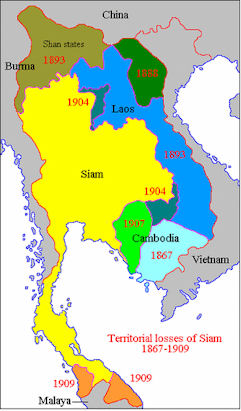

Zitierweise / cite as:
Payer, Alois <1944 - >: Chronik Thailands = กาลานุกรมสยามประเทศไทย. -- Chronik 1999 / B. E. 2542. -- 2. Januar bis Juni. -- Fassung vom 2017-03-20. -- URL: http://www.payer.de/thailandchronik/chronik1999b.htm
Erstmals publiziert: 2012-10-25
Überarbeitungen: 2017-03-20 [Ergänzungen]; 2017-01-05 [Ergänzungen]; 2016-02-29 [Ergänzungen]; 2016-02-09 [Ergänzungen]; 2016-01-24 [Ergänzungen]; 2014-09-17 [Ergänzungen]; 2014-08-24 [Ergänzungen]; 2014-04-10 [Ergänzungen]; 2013-11-01 [Ergänzungen]; 2013-05-24 [Ergänzungen]; 2013-04-26 [Teilung des Jahrgangs]; 2013-04-21 [Ergänzungen]; 2013-04-14 [Ergänzungen]; 2013-03-30 [Ergänzungen]; 2013-03-19 [Ergänzungen]; 2013-02-09 [Ergänzungen]; 2013-02-04 [Ergänzungen]; 2013-01-26 [Ergänzungen]; 2013-01-13 [Ergänzungen]; 2012-11-12 [Ergänzungen]
©opyright: Dieser Text steht der Allgemeinheit zur Verfügung. Eine Verwertung in Publikationen, die über übliche Zitate hinausgeht, bedarf der ausdrücklichen Genehmigung des Herausgebers.
Dieser Text ist Teil der Abteilung
Thailand von
Tüpfli's Global Village Library
ช้างตายทั้งตัวเอาใบบัวปิดไม่มิด
|
Gewidmet meiner lieben Frau Margarete Payer die seit unserem ersten Besuch in Thailand 1974 mit mir die Liebe zu den und die Sorge um die Bewohner Thailands teilt. |
|
Bei thailändischen Statistiken muss man mit allen Fehlerquellen rechnen, die in folgendem Werk beschrieben sind:
Die Statistikdiagramme geben also meistens eher qualitative als korrekte quantitative Beziehungen wieder.
|
1999-01-01
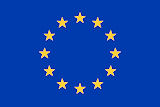
Einführung des Euro in 11 europäischen Ländern.
Abb.: Offizielles Symbol
1999-01-06
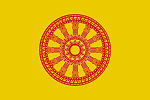
Abb.: Sanitsuda Ekachai (สนิทสุดา เอกชัย)
[Bildquelle: FAO]Bangkok Post: Sanitsuda Ekachai (สนิทสุดา เอกชัย, 1955 - ): "There's no merit in false claims"
Kommentar zur Entscheidung des Religious Departement, dass die Lehren der Dhammakaya-Bewegung (ธรรมกาย) dem Theravāda-Buddhismus teilweise widersprechen.
"The media also dug up new facts about Dhammakaya’s [ธรรมกาย] business conglomerate run by the abbot, Phra Dhammachayo [พระธมฺมชโย, 1944 - ], and his close aides. Interestingly, the media also revealed that Luang Poh Sod Chantasaro [หลวงพ่อ สด จนฺทสโร, 1884 - 1959], the founder of Dhammakaya, had actually admitted to a Vipassana (วิปัสสนา) meditation master that the images one sees during a meditative state — one’s celestial body and heaven full of Buddhas — aren’t real, but mere visions created by the mind. Yet, in an increasingly pluralistic society, it’s impractical and not right to stop people pursuing their different beliefs. The state has a duty to foster religious freedom. At the same time, Dhammakayism, as a new religious movement, must be courageous enough to admit who they are and stop exploiting the guises of Theravada Buddhism to attract followers.
It’s this bravery which differentiates seers from copycats."
[Sanitsuda Ekachai (สนิทสุดา เอกชัย) <1955 - >: Keeping the faith : Thai Buddhism at the crossroads. -- Bangkok : Post Books, 2001. -- 322 S. : Ill. ; 23 cm. -- ISBN 974-228-016-9. -- S. 284]
Abb.: Videokassette mit Phra Dhammachayo (พระธมฺมชโย, 1944 - )
[Bild: Fair use]
1999-01-10
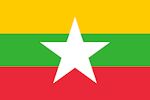
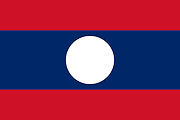
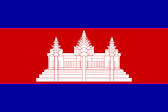
Bangkok Post veröffentlicht folgende Karte:
Abb.: DRug traficking routes inside and outside of Thailand
[Fair use]
1999-01-13
The Nation <Bangkok> zitiert Plodprasop Suraswadi (ปลอดประสพ สุรัสวดี, 1945 - ), seit 1998 Chef des Royal Forest Department:
"When I first became director-general, I found there was a safe in my office. Every month, many chiefs of important divisions had to visit and contribute something. At every promotion or annual reshuffle, officials had to pay a minimum of Bt 50,000, up to a maximum of Bt 5 million." [Zitiert in: Fahn, James David <1965 - >: A land on fire : the environmental consequences of the Southeast Asian boom. -- Boulder : Westview, 2003. -- 365 S. ; 24 cm. -- ISBN 0-8133-4267-8. -- S. 152f.]
1999-01-23
Ein Waran (เหี้ย, Varanus sp.) taucht im Armee-Hauptquartier auf. Dies gilt als böses Vorzeichen. Schon öfters wurden Warane auf Regierungs- oder Militär-Grundstücken ausgesetzt, um Angst und Schrecken zu verbreiten.
Abb.: Versetzt das tapfere Thai-Militär in Angst und Schrecken: Waran (เหี้ย, Varanus sp.), Bangkok
[Bildquelle: Francesco Veronesi. -- http://www.flickr.com/photos/francesco_veronesi/3230035094/. -- Zugriff am 2011-12-24. -- Creative Commons Lizenz (Namensnennung, keine kommerzielle Nutzung, share alike)]
1999-01-30

In Pattaya (พัทยา) wird ein deutscher Geschäftsmann wegen Drogenhandels und anderer mafiöser Tätigkeiten verhaftet. Er sagt, dass er 22 Mio. Baht Bestechungsgelder ausgegeben hat, um nicht an Deutschland ausgeliefert zu werden. Innenpolitisch sorgt der Fall für ziemliches Aufsehen bis hin zu einem Misstrauensvotum gegen den Innenminister. 2001 wird der Herr an Deutschland ausgeliefert, wo er wegen Betrugs zu 12 Jahren Haft verurteilt wird. Er hatte Deutsche um 2 Mio. Baht betrogen, die er für eine nicht existierendes Tierheim in Pattaya gesammelt hatte.
Abb.: Lage von Pattaya (พัทยา)
[Bildquelle: OpenStreetMap. -- Creative Commons Lizenz (Namensnennung, share alike)]
1999-02-04

Der nach Kanada geflohene Finanzier Rakesh Saxena (ราเกซ สักเสนา, 1952 - ) behauptet, dem früheren Ministerpräsidenten Banharn Silpa-archa (บรรหาร ศิลปอาชา, 1932 - ) $4 Mio. an Bestechungsgeldern bezahlt zu haben. Auch der frühere Finanzminister Surakiart Sathirathai (สุรเกียรติ์ เสถียรไทย, 1958 - ) und der frühere Vize-Innenminister Suchart Tancharoen (สุชาติ ตัน
เจริญ, 1958 - ) hätten von ihm Bestechungsgelder erhalten.
Abb.: Lage von Whistler (Kanada), wo Saxena festgenommen wird
[Bildquelle: OpenStreetMap. -- Creative Commons Lizenz (Namensnennung, share alike)]
Abb.: Rakesh Saxena (ราเกซ สักเสนา)
[Bildquelle: th.Wikipedia. -- Fair use]
"Rakesh Saxena (born July 13, 1952 Indore (इंदौर ), Madhya Pradesh (मध्य प्रदेश), India) is an Indian financier and trader in the derivatives marketplace. On October 29, 2009, he was deported to Thailand after fighting the longest extradition battle in Canadian history, which lasted 13 years. He is accused of embezzlement in 1994-1995. He is widely reputed to have been engaged in dozens of high risk ventures and deals throughout the world over the previous three decades. Early years
Rakesh Saxena studied in India at St. Stephen's College and in Britain. He graduated with a Master of Arts degree in English Literature. He worked in a foreign exchange and money market brokerage company, where he concentrated on complex financial transactions and foreign exchange speculation, first in Delhi (दिल्ली), Bombay (मुंबई), Sri Lanka and Singapore, and then for the Oriental Bank of Commerce (ओरिएंटल बैंक ऑफ कॉमर्स) in Delhi, before the Indian government nationalized it.
In the mid-1970s, Saxena moved to Hong Kong, where he met his wife, a Thai national. In Hong Kong, he first worked as a foreign exchange dealer in Kowloon (九龍), and then joined Wocom Commodities. He moved his base to Bangkok in 1985 where the Bank of Thailand had announced the opening up of the forex markets. He then shifted focus to the derivatives arena.
In Bangkok, Saxena dealt in speculation on buying and selling companies and wrote a financial column in the Bangkok Post, spoke in seminars of foreign exchange trading and formed numerous contacts in the business community. Among his interests were mines in Sierra Leone, companies in Australia, Belize, Canada, Cayman Islands, Russia, Thailand, Hong Kong, Israel, Cyprus and the Virgin Islands, and a number of Swiss bank accounts.
Extradition to ThailandOn October 31, 2009, when the Supreme Court of Canada denied the final Appeal of Mr. Saxena, he was immediately handed over to Thai authorities who flew him to Thailand, where Mr. Saxena is now awaiting trial on Fraud charges.
A Marxist MillionaireAs a student, he embraced Marxism, and Saxena's consulting work continues to be informed by Marxist political theory.
Saxena sees no contradiction in being a wealthy Marxist. He is a theorist, not an activist, he said. "I'm not a Che Guevara," he said. "I'm not going to go sit in the jungle fighting. My analysis is basically a Marxist analysis of risk. I'm not a capitalist. I make money through sheer brain power."
However, reliable sources suggest that Saxena was (and remains) an active member and ideologue of the extremist Naxalite movement in the 1970s and he has continued to support far-left parties in Nepal and in India, including the Maoist Communist Parties of India and Nepal.
Bangkok Bank of Commerce (BBC - ธนาคารกรุงเทพฯ พาณิชยการ - บีบีซี)In 1989, Saxena became advisor to Krirk-kiat Jalichandra, new senior vice-president of Bangkok Bank of Commerce. The bank tried hostile takeovers against many of the large Thai companies that traded publicly on the stock exchange. According to later investigation, it also gave cheap loans to various public officials and politicians in India, Russia, Thailand, Singapore, Saudi Arabia and Lebanon.
Bangkok Bank of Commerce collapsed in 1996 and the Bank of Thailand (ธนาคารแห่งประเทศไทย) took it over. The collapse contributed to the Asian financial recession, economic and political crisis and the 1997 devaluation of the baht. Saxena was at his residence in Prague or Zurich at the time the story broke, and he never returned to Thailand.
In June 1996, Thai authorities charged Saxena, Krikkiat Jalichandre, Rajan Pillai and Adnan Khashoggi and a number of other people with embezzling money estimated to be worth $US2.2 billion (or according to other estimates, $US88 million). Saxena himself had allegedly siphoned off £300 million in 1992-1993 through a string of derivative transactions. Saxena said that he was just an advisor and a trader and that the collapse of the real estate markets was the real trigger of the recession. His relationship with Russian tycoons and Arab sheikhs continues to be a subject of speculation.
Detention in CanadaThe Royal Canadian Mounted Police arrested Saxena on July 7, 1996 at Whistler, British Columbia, on behest of the Thai police. He was initially imprisoned for 2–3 days in a Canadian pre-trial centre. Saxena resisted extradition, claiming that he would be killed if he would return to Thailand.
In February 1998, Saxena was put on bail of $2.5 million because he was regarded as a flight risk. British Columbia Supreme Court overturned this ruling on June 24, 1998, allowing him to resist extradition in Vancouver, under his own guards in an effective house arrest at his own expense. On September 4, 1998 Thailand asked authorities in 22 countries to freeze his assets, which, at the time, amounted to $135–300 million. Thailand also filed a civil suit against him.
In September 2005, the lower Canadian court ruled that Saxena should be extradited but the government of Canada did not enforce this ruling. Saxena further delayed his extradition with appeals. On October 21, 2005, the Canadian court postponed Saxena's extradition once again until January 2006.
On March 3, 2006 Saxena lost his B.C. Court of Appeal bid to overturn the federal justice minister's order that he be surrendered to Thai authorities, despite his contention that he could be killed or tossed in an inhumane prison cell in Thailand. Saxena's lawyer appealed. One of the possible reasons cited for him being released was the recent coup d’état in Thailand, which ousted the internationally recognized government, thus causing significant turmoil for the crown.
On October 29, 2009 the Supreme Court of Canada denied Saxena’s hearing request regarding a lower-court decision upholding his extradition. The Supreme Court gave no reason for its decision. Later that day, Saxena was turned over to Thai authorities and left Canada for Thailand.
Business with Sierra LeoneA military coup ousted president Ahmad Tejan Kabbah of Sierra Leone in May 1997. Kabbah fled to Guinea and set up a government in exile. Around July 1997 he contacted British mercenary Tim Spicer of the Sandline International to organize a counter-coup. Saxena agreed to finance the countercoup in exchange for diamond exploration permits.
According to the British Parliament's Report of the Sierra Leone Arms Investigation, Saxena would raise the money so that Sandline could hire soldiers and buy equipment. In return, Kabbah would give Saxena's companies permits for diamond exploration and promises of further business. Saxena would pay Sandline for their operations. However, someone leaked the relevant documents to The Globe and Mail. In an interview the same year Kabbah denied knowledge of any negotiations with Saxena.
According to Spicer, who testified for the Report, Saxena did not give them the funds he had promised; reports have contradicted Spicer on this issue. Sandline bought more weapons from Bulgaria but they were too late - Nigerian-lead troops loyal to Kabbah had already seized the capital. As a result, Saxena did not receive the permits. Later British government investigation confirmed that Kabbah had not told the whole truth. In later interview Saxena claimed that he wanted to help for "ideological reasons" and the last thing on his mind was owning mines in Africa.
General Commerce BankRakesh Saxena was, until recently, allegedly fraudulently active in Britain (West Shore Ventures), South Africa in 2004 (Platinum Asset Management) and then Botswana (Investor Relations), South Africa (Phoenix Capital Partners), as the Sunday Standard and had revealed in August 2005. It is now known whether Saxena owned the African companies or not.
Adnan Khashoggi, Oleg Boiko, Rakesh Saxena, Amador Pastrana, and Regis Possino, a lawyer believed to be the chief architect of the General Commerce Bank transaction, together acquired General Commerce Bank, in Vienna Austria, from where they allegedly organized international stock and bond deals. Associated with Possino were Sheman Mazur and Raoul Berthamieu, from the U.S. Possino and Khashoggi were credited with raising over $65 million for Genesis International, prior to the selling of the shares being halted by the SEC. Neither Possino nor Khashoggi were implicated in any wrongdoing in that regard.
Victims came from many countries, including Australia, Britain, and South Africa. Again Saxena's exact role has never been determined in many of these transactions. His name never showed up in any ownership documents. The Austrian government has not charged him with anything. One reason may well be that, in many instances, it is believed, that parties involved in international deals pay Saxena simply to have him on side. Saxena is not averse to shorting stocks. According to one of India's biggest power brokers, Chandraswami (also Nemi Chand Jain), Saxena is not averse to greenmail-type attacks on deals in progress, and due to his extensive knowledge of the markets (financial, economic and political), his reach is daunting, but his name is not on the paperwork. One senior Indian cabinet minister also alleged that Saxena is making options and futures prices on speculative Indian shares from offshore jurisdictions and that he is the price maker "of last recourse" for speculators in Mumbai.
Reports suggest that Saxena from his residence conducts several questionable and high-profile deals around the world, primarily deals in the exotic world of third world debt and derivatives; many such deals are, until now, outside the regulatory umbrellas and are likely to remain so for many more years.
Mr. Saxena and his company Westshore Ventures were sued by Pacific Energy & Mining Company of Reno, Nevada in the United States District Court for the District of Nevada for fraud and conspiracy to defraud Pacific Energy of over 1.5 million dollars. Pacific Energy had also filed a criminal complaint with the Federal Bureau of Investigation, however, the proceedings were stopped due to the extradition of Mr. Saxena to Thailand.
Since Mr. Saxena's extradition to Thailand, no additional securities frauds have been perpetrated by Mr. Saxena.
Recent developmentsIn August 2006, the Thai government set up a new team to seize the rest of Saxena's assets overseas, targeting those in Canada. Then Minister Chidchai Wannasathit (ชิดชัย วรรณสถิตย์) ordered the Anti-Money Laundering Office and the Royal Thai Police to help the Attorney-General in this task. Canadian Appeals court denied his request for bail. [Bail was granted later].
Rakesh Saxena was also a defendant in number of Civil Lawsuits in United States, including in the United States District Court for the District of Nevada; he won those cases or those cases simply faded away.
Charges Against SaxenaSaxena has been accused of many things but has not convicted of anything as of yet.
In India, Saxena has been accused of culpable homicide, extortion, uttering death threats and cheating in the death of biscuit tycoon Rajan Pillai. Those allegations were laid after the tycoon's widow accused Saxena and three others of conspiring to kill her husband. Pillai was introduced to Saxena by some prominent Indian power brokers, including Chandraswani. The tycoon's widow, former model Nina Pillai, was considered very close to Saxena by people who saw her often at Saxena's Bangkok residence. Former bank officials in Thailand have claimed that Nina Pillai continued to be financed by Saxena after her husband's death.
The Government of Thailand accuse Saxena embezzling $88 million from the Bangkok Bank of Commerce (BBC) and seeks his extradition from Canada. The bank has separately filed civil proceedings against Saxena. He has filed a counter-suit.
The collapse of the BBC was one of the first dominoes in a financial crisis that spread across Asia, shaking the world economy in 1997. While some blame Saxena for sparking the inferno - The Wall Street Journal described him as the "Mrs. Leary's cow of the global financial crisis" - he is not facing court action on that score. He is also linked to some of the major hedge fund problems of the late 1990s, particularly problems linked to third world bonds and leveraged currency and interest rate derivatives on such bonds and to problems now associated with Russian and East Europe privatizations of the Yeltsin era.
No charges were laid in the ill-fated Sierra Leone affair. The British Parliament's Report of the Sierra Leone Arms Investigation concluded that the purchase of weapons with Saxena's money only technically broke a United Nations embargo and that Canada was not yet enforcing the embargo."
[Quelle: http://en.wikipedia.org/wiki/Rakesh_Saxena. -- Zugriff am 2011-12-24]
1999-02-06
In Kamala (กมลา), Provinz Phuket (ภูเก็ต), wird der Nighttime Cultural Theme Park "Phuket FantaSea" (ภูเก็ต แฟน์ตาซี) eröffnet. Baukosten 3,5 Millliarden Baht.
Abb.: Lage von Phuket (ภูเก็ต)
[Bildquelle: OpenStreetMap. -- Creative Commons Lizenz (Namensnennung, share alike)]
Abb.: Abb.. PhuketFantaSea (ภูเก็ต แฟน์ตาซี), 2005
[Bildquelle: Lerdsuwa / Wikimedia. -- GNU FDLicense]
1999-02-22 - 1999-02-27
1999 Fed Cup Asia/Oceania Zone (Frauentennis) in Samut Prakan (สมุทรปราการ)
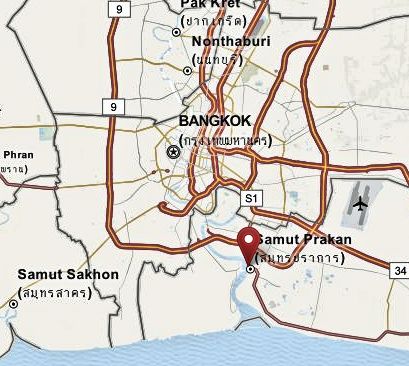
Abb.: Lage von
Samut Prakan (สมุทรปราการ)
[Bildquelle: OpenStreetMap. --
Creative
Commons Lizenz (Namensnennung, share alike)]
1999-02-24
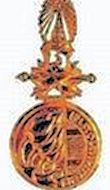
Zu National Artists (ศิลปินแห่งชาติ) werden ernannt:

Abb.: Einbandtitel eines Buchs von Supha Sirisingha (นางสุภา สิริสิงห์
= โบตั๋น = ปิยตา = ปิยตา วนนันทน์ = ส. ลือศิริ)
[Fair use]
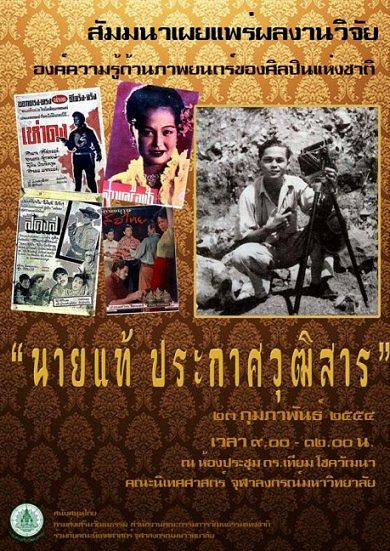
Abb.: Plakat zu einer Veranstaltung über Thae Prakas-vudhisarn (นายแท้ ประกาศวุฒิสาร
= บุญแท้ เหมะบุตร)
[Fair
use]
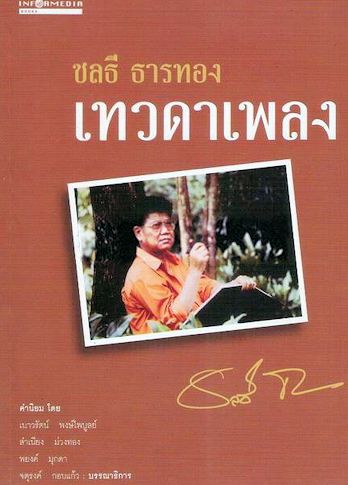
Abb.: Einbandtitel eines Buchs über Somnuke Thongma (นายสมนึก ทองมา
= ชลธี ธารทอง)
[Fair use]
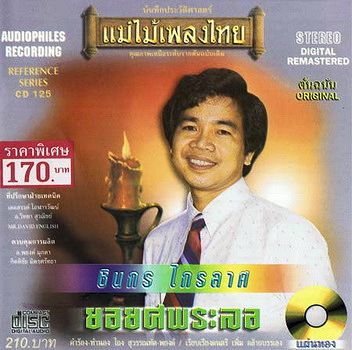
Abb.: CD-Titel von Chin Faithes (นายชิน ฝ้ายเทศ
= ชินกร ไกรลาศ)
[Fair
use]
1999-03-02

Von Beijing kommend trifft US Secretary of State Madeleine Korbel Albright (1937 - ) in Chiang Mai (เชียงใหม่) zu einem Staatsbesuch in Thailand ein
1999-03-05

NZZ: Thailand unter der AIDS-Fuchtel : Erfolge und Rückschläge im Kampf gegen das HI-Virus.
"Zur Tätigkeit von Jugendorganisationen wie der vom Fastenopfer mitfinanzierten Stiftung für die Landjugend (Foundation for Rural Youth, FRY) gehört deshalb die Aids-Arbeit. FRY klärt Jugendliche auf, die in der Stadt Arbeit suchen wollen, aber auch die Landbevölkerung allgemein. «Ist es gefährlich, wenn ein HlV-Positiver im Schulzimmer ist?» fragt die Instruktorin Jeerawan Yatniyom (จีระวรรณ์ ญาตินิยม)eine versammelte Schulklasse. Der erste mit der richtigen Antwort bekommt eine Tube Zahnpasta. Auf spielerische Weise werden die Jugendlichen mit dem Umgang mit Kondomen vertraut gemacht. Das Aufblasen ist ein Gaudi; es soll die Leute von der Qualität überzeugen. Die Abwehr von Aids wird durch ein neues Phänomen erschwert: In Windeseile hat sich als weiteres Übel eine Amphetaminseuche über Thailand ausgebreitet. Innert der letzten zwei Jahre hat die Aufputschdroge auch in den hintersten Dörfern Fuß gefasst. Dieser «Erfolg» ist der offensichtlichen Protektion der Dealer durch die Polizei zu verdanken. Es sind auch Fälle bekannt, bei denen Lehrer die Lieferanten sind. Besonders verheerend wirkt «Yaba» (ยาบ้า), ein Gemisch aus Amphetamin und Koffein. Viele Aids-kranke Jugendliche sind gleichzeitig amphetaminsüchtig. Ein Beispiel aus der Provinz Yasothon (ยโสธร), im Nordosten Thailands, illustriert die Komplikationen. Dort hat Frau Sutasinee (ศุทธสินี) ein Projekt gegründet, das für Aids-kranke Jugendliche sorgt. Japan hat dem Projekt ein imposantes Gebäude gestiftet und mit einem Schild versehen, «Donated by the Japanese Embassy». An die Betriebskosten wurde nicht gedacht. Jetzt kann kaum mehr die Stromrechnung bezahlt werden. Der entscheidende Schlag gegen Frau Sutasinee wurde allerdings geführt, nachdem sie eine Kampagne gegen die Amphetamindealer begonnen hatte. Eines Morgens stand die Polizei vor der Tür und rief die Jugendlichen zum Drogentest. Siehe da, im Urin aller fanden sich Spuren von Amphetamin. Die Leiterin wurde zu einer hohen Busse verurteilt, ihr Ruf war ruiniert. Spätere Nachforschungen ergaben, dass jemand die Amphetamine in den Wassertank geworfen hatte und dann die Polizei rief. In Thailand ist es offenbar kein Widerspruch, dass auf Drogenhandel die Todesstrafe steht, aber das Geschäft von Polizisten gedeckt oder betrieben wird, wie auch, dass Prostitution illegal ist und trotzdem an allen Ecken floriert."
[Quelle: NZZ Internationale Ausgabe. -- 1999-03-05. -- S. 7. -- Fair use]
Abb.: Lage der Provinz Yasothon (ยโสธร)
[Bildquelle: OpenStreetMap. -- Creative Commons Lizenz (Namensnennung, share alike)]
Abb.: ya ba (ยาบ้า)
[Fair use]
1999-03-09 - 2001-12-21

Richard E. Hecklinger ist US-Botschafter in Thailand.
1999-03-14
Eine Gruppe von NGO-Profis und Akademikern gründet Living River Siam (โครงการแม่น้ำเพื่อชีวิต).
"Living River Siam (Thai: โครงการแม่น้ำเพื่อชีวิต; formerly South East Asia Rivers Network, or SEARIN) is a Thai non-governmental organization (NGO) which analyzes the impact of Thailand's various dam projects and coordinates the research of indigenous peoples to give Thai villagers the power to document the influence of local rivers and dams. Founded in 1999, it gained prominence during the Pak Mun Dam (เขื่อนปากมูล) study period in 2001, when it developed a method for instructing villagers on how to document the effects of the dammed river on their lives. When the Thai government proposed other dam sites, Living River Siam took its research methods to the villages surrounding those sites as well. Today, the organization works with other NGOs in Southeast Asia to counter government-sponsored research that encourages dam construction." [Quelle: http://en.wikipedia.org/wiki/Living_River_Siam. -- Zugriff am 2012-06-08]
1999-03-19
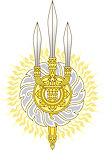

Es erscheint der Animations-Film "The King and I" in Anlehnung an das gleichnamige Musical (1951) von Richard Rodgers (1902 - 1979) und Oscar Hammerstein II (1895 - 1960). Vorlage für das Musical ist "Anna and the King of Siam" (1944) von Margaret Landon (1903 - 1993), die wiederum "The English Governess at the Siamese Court" (1870) von Anna Leonowens (1831 - 1915) verwertet.
Soundtrack auf Spotify:
URI:
spotify:album:4z7F9rShDFtLdWZfU33pj1
URL:
https://open.spotify.com/album/4z7F9rShDFtLdWZfU33pj1
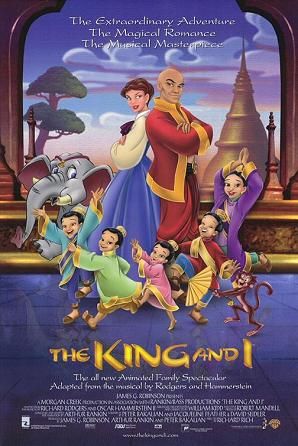
Abb.: Plakat
[Bildquelle. Wikipedia. -- Fair use]
1999-03-19

In Amphoe Hot (ฮอด) werden über 1 Mio. Pillen Ya Ba [ยาบ้า] konfisziert. Sie kommen aus Ho Mong (Myanmar)
Abb.: Lage von Hot (ฮอด) und Ho Mong
[Bildquelle: OpenStreetMap. -- Creative Commons Lizenz (Namensnennung, share alike)]
1999-03-23

Abb.: Sanitsuda Ekachai (สนิทสุดา เอกชัย)
[Bildquelle: FAO]Bangkok Post: Sanitsuda Ekachai (สนิทสุดา เอกชัย, 1955 - ): "Dhamma and development."
Über den Mönch Phra Khru Supajarawat, Abt von Wat Tha Lat (วัดท่าลาด), Amphoe Kut Chum (กุดชุม), Provinz Yasothon (ยโสธร). Er gehört zu den "development-monks". In seinem bescheidenen Kloster werden keine Amulette verkauft und stehen nicht überall Opferstöcke. Durch Monokultur waren die Bauern von Kut Chum praktisch pleite. Sie waren auch dem Glücksspiel, der Verschuldung und dem Alkoholismus verfallen. 1983 machte Phra Khru Supajarawat sein Kloster zu einem Zentrum für traditionelle Medizin, um die Abhängigkeit der Bauern von teurer westlicher Medizin zu verringern und um das Selbstbewusstsein der Bevölkerung zu stärken. Der Abt nutzte die Einnahmen bei buddhistischen Zeremonien für einen Land-Verbesserungs-Fond, der chemiefreie - und damit schuldenfreie - Landwirtschaft fördert. Eine Gemeinschafts-Reismühle für Pestizid-freien Reis war eines der nächsten Projekte. Bauern schenkten über 1000 Rai Wald für ein Naturschutzgebiet. Darin unterrichtet der Abt die Bauern in Meditation. Das Ziel ist eine lokale Subsistenz-Wirtschaft.
Phra Khru Supajarawat gründete ein Netzwerk ("Sangha Arsa Pattana") von Mönchen der Provinz Yasothon (ยโสธร), um "development-monks" zu fördern. Dieses Netzwerk ist mit Mönchen in anderen Provinzen Nordostthailands verbunden sowie mit dem nationalen Netzwerk von "development-monks", Sekhiyadharma Group [กลุ่มเสขิยธรรม].
"Instead of being intent on giving sermons, we must learn from villagers about their problems. And what they honestly think about us." "If we want to solve our crisis, we must stop thinking money," he stressed. "We also must stop depending on outside help. The answer is self-reliance."
[Phra Khru Supajarawat. -- Zitiert in: Sanitsuda Ekachai (สนิทสุดา เอกชัย) <1955 - >: Keeping the faith : Thai Buddhism at the crossroads. -- Bangkok : Post Books, 2001. -- 322 S. : Ill. ; 23 cm. -- ISBN 974-228-016-9. -- S. 140]
Abb.: Lage von Amphoe Kut Chum (กุดชุม)
[Bildquelle: OpenStreetMap. -- Creative Commons Lizenz (Namensnennung, share alike)]
1999-03-25

Abb.: Sanitsuda Ekachai (สนิทสุดา เอกชัย)
[Bildquelle: FAO]Bangkok Post: Sanitsuda Ekachai (สนิทสุดา เอกชัย, 1955 - ): "Society needs its checks on the clergy."
Kommentar zur Entscheidung des Sangha-Konzils gegen die Dhammakaya-Bewegung (ธรรมกาย). Der Führer der Bewegung, Phra Dhammachayo (พระธมฺมชโย, 1944 - ) wurde weder aus dem Orden ausgestoßen noch als Abt abgesetzt.
"The Council’s arbitration was based on the Religious Department’s compilation of Dhammakaya’s misconduct. The agenda is Dhammakaya’s off-beat Nirvana-as-heaven teachings and its obtrusive fund-raising. It does not include Dhammakaya’s other offences, such as the abbot’s reincarnation claims, business dealings, massive land ownership and dubious relations with some female followers. Since they were not on the official agenda, the Council dismissed them to simplify things. Insiders have revealed that Phra Dhammachayo believes he is reincarnated from the "original source" of all Buddhas and that his mission is to save the world from a doomsday calamity. According to the Vinaya, he can be defrocked for such a claim.
Deputy Education Minister Arkom Engchuan [อาคม เอ่งฉ้วน, 1951 - ] urged the public to accept the Council’s judgment as final. Sorry, that is a tail order.
On the positive side, the Supreme Council’s resolution shows that it is a weak institution. Which is precisely as it should be. Such weakness allows room for social control — the only force that can keep the Sangha in check — to grow stronger.
In the old days, the neighbourhood controlled monks and temples. That went with the dictatorial Sangha Bill which gave the Supreme Council sole power to allocate monastic positions and power. Monks feel they only need to please the Council elders.
Our challenge is to make the clergy accountable to society again. Hopefully, the more disillusioned we are with the weak Sangha, the louder will be society’s call for reform. And the sooner it becomes reality, the better."
[Sanitsuda Ekachai (สนิทสุดา เอกชัย) <1955 - >: Keeping the faith : Thai Buddhism at the crossroads. -- Bangkok : Post Books, 2001. -- 322 S. : Ill. ; 23 cm. -- ISBN 974-228-016-9. -- 290.]
Abb.: Arkom Engchuan (อาคม เอ่งฉ้วน, 1951 - )
[Bildquelle: th.Wikipedia. -- Public domain]
1999-03-28

Gründung des Shan Women’s Action Network (ရှမ်းအမျိုးသမီးရေးရာ ဆက်သွယ်လှုပ်ရှားဆောင်ရွက်ရေးအသင်း: SWAN).
"The Shan Women’s Action Network (Burmese: ရှမ်းအမျိုးသမီးရေးရာ ဆက်သွယ်လှုပ်ရှားဆောင်ရွက်ရေးအသင်း: abbreviated SWAN), is a organization of Shan (တႆး) women active in Shan State (မိူင်းတႆး) and Thailand, working to attain gender equality and achieve justice for Shan women in the struggle for social and political change in Burma. Through its affiliation with local, regional and international women's organizations, SWAN establishes common platforms to promote the role of women from Burma in the struggle for democracy and human rights in the country.
Set up on 28 March 1999 by a group of Shan women seeking to address the practical and strategic needs of Shan women, SWAN established the informal networks already in place between the various Shan women’s projects, therefore strengthening and supporting them. The network is also a founding member of the Women’s League of Burma (WLB), an umbrella organization comprising twelve women’s groups from Burma."
[Quelle: http://en.wikipedia.org/wiki/Shan_Women%27s_Action_Network. -- Zugriff am 2012-10-09]
Abb.: Lage des Shan State (မိူင်းတႆး)
[Bildquelle: CIA. -- Public domain]
1999-04

Feuergefecht zwischen Thahan Phran (ทหารพราน, Rangers) und Drogentransporteuren der United Wa State Army (ဝပြည် သွေးစည်းညီညွတ်ရေး တပ်မတော် ; 佤联军) in der Provinz Chiang Mai (เชียงใหม่).
Abb.: Lage des Wa-Staats (佤邦)
[Bildquelle: OpenStreetMap. -- Creative Commons Lizenz (Namensnennung, share alike)]
"Die United Wa State Army (UWSA) ist der bewaffnete Arm der United Wa State Party (UWSP), einer politischen Gruppierung, die sich für die ethnische Minderheit der Va ( 佤族) im Shan-Staat (မိူင်းတႆး) von Myanmar (Birma) einsetzt. Die UWSA gilt als eine der am besten bewaffneten und mit 20.000 – 30.000 Soldaten als eine der kampfstärksten autonomen Milizen in Myanmar. Die UWSA hält sich an den Waffenstillstand, den sie mit der birmanischen Militärregierung, dem SPDC (State Peace and Development Council; နိုင်ငံတော် အေးချမ်းသာယာရေး နှင့် ဖွံ့ဖြိုးရေး ကောင်စီ), geschlossen hat. Die UWSA wird oft mit der Herstellung von Drogen in Zusammenhang gebracht. Auch ist die UWSA für ihre großangelegten Umsiedlungsaktionen von Bergbewohnern in Täler bekannt. Ihr werden gravierende Menschenrechtsverletzungen vorgeworfen. Das Hauptquartier der UWSA befindet sich in Panghsang (邦桑) an der chinesisch-birmanischen Grenze am Namkha-Fluss. Die UWSA wird von China finanziell unterstützt und mit Waffen versorgt. [1] Der President der UWSA und der UWSP ist Bao Youxiang (鲍有祥) [2] Am 17. April 2009 feierte die UWSA den zwanzigsten Jahrestag seit ihrer Gründung.[3]"
[Quelle: http://de.wikipedia.org/wiki/United_Wa_State_Army. -- Zugriff am 2012-10-01]
1999-04

Drogenhändler töten in Ban Mae Soon Noi (บ้านแม่สูนน้อย, Amphoe Fang - ฝาง) neun Dorfbewohner.
Abb.: Lage von Amphoe Fang (ฝาง)
[Bildquelle: OpenStreetMap. -- Creative Commons Lizenz (Namensnennung, share alike)]
1999-04/05

Peter Merholz bildet aus dem seit 1997-12-17 bestehenden, von John Barger (1953 - ) gebildeten, Begriff "weblog" den Begriff "blog". Seither wimmelt es im Internet (auch Thailands von Blogs und Bloggern.
Abb.: Thailand Blog.Awards 2011
[Bildquelle: http://thumbsup.in.th/2011/07/thailand-blog-awards-2011-2/. -- Zugriff am 2013-11-01. -- Fair use]
1999-04-04
Der Volksaufstand im Oktober 1973 soll in Zukunft in Schulbüchern (vorsichtig) behandelt werden.
1999-04-08
Gründung von Burapat Comics: spezialisiert auf Lizenzen von Comics aus Hongkong, Japan, Taiwan, Südkorea.
1999-04-12
Ab jetzt wird auf den Identitätsausweisen die Religion vermerkt.
Abb.: Ausschnitt aus Identitätsausweis: ศาสนา อิสลาม (Religion: Islam)
1999-04-12
Laut The Nation <Bangkok> hat die Regierung zugestimmt, von den Bauern Gebühren für das Bewässerungswasser zu erheben. Dies ist eine Bedingungen für einen Agrarkredit über $600 Mio. von der Asian Development Bank. Bisher war Wasser für die Bewässerung für Bauern gratis.
1999-04-14

Ein Gericht in Malaysia verurteilt den früheren Vizepremier Anwar Ibrahim (1947 - ) wegen Korruption zu sechs Jahren Haft. Er soll seine Position dazu missbraucht haben, um Ermittlungen über sein angebliches außereheliches Sexleben zu unterdrücken. Gegen das Urteil kommt es zu gewalttätigen Protesten. Anwars Anhänger behaupten, Anwar solle mit dem Urteil politisch kalt gestellt werden. Auch die USA und EU kritisieren das Urteil.
Abb.: Anwar Ibrahim, 2008
[Bildquelle: adzliyana. -- http://www.flickr.com/photos/adzliyana/2286827885/. -- Zugriff am 2011-12-19. -- Creative Commons Lizenz (Namensnennung, keine kommerzielle Nutzung, share alike)]
1999-04-25
Bangkok: Jubiläumskonzert "25 Jahre Caravan (ฅาราวาน)" (คาราวาน 2517 – 2542). Der Bandleader Surachai "Nga" Jantimathawn (สุรชัย "หงา" จันทิมาธร, 1948 - ) erklärt:
"At that time [post-1973] we tried to write and sing songs for farmers and laborers. To speak truly, the work didn’t reach the hearts of those classes much. The farmers didn’t understand it at all. Mostly it was students, intellectuals, protesters. When we really sang for farmers, they were confused." [Übersetzt in: Platt, Martin B.: Isan writers, Thai literature : writing and regionalism in modern Thailand. -- Copenhagen : NIAS, 2013. -- 249 S. ; 23 cm. -- ISBN 9788776941291. -- S. 142.]
Die Gruppe auf Spotify:
URI: spotify:artist:04jYFrScdfjeB9KtUuNSdb
URL: https://open.spotify.com/artist/04jYFrScdfjeB9KtUuNSdb
Abb.: Caravan (ฅาราวาน)
[Bildquelle: th.Wikipedia]
1999-04-26 - 2001-11-21

Sultan Salahuddin Abdul Aziz Shah Al-Haj ibni Hisamuddin Alam Shah Al-Haj (1926 - 2001) ist König (Yang di-Pertuan Agong) von Malaysia
1999-04-30
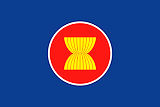

Kambodscha wird Mitglied der ASEAN.
Abb.: ASEAN-Staaten 1999
[Bildquelle: Wikipedia. -- Public domain]
1999-05-01

20 Soldaten, vermutlich birmanische Regierungstruppen und Truppen der Democratic Karen Buddhist Army (တိုးတက်သော ဗုဒ္ဓဘာသာ ကရင်အမျိုးသား တပ်ဖွဲ့), greifen die Polizeistation in Ban Nam Piang Din (บ้านน้ำเพียงดิน), Provinz Mae Hong Son (แม่ฮ่องสอน), an. Vermutlich steht die Tat im Zusammenhang mit dem Vorgehen Thailands gegen den Drogenhandel.
Abb.: Lage von Ban Nam Piang Din (บ้านน้ำเพียงดิน)
[Bildquelle: OpenStreetMap. -- Creative Commons Lizenz (Namensnennung, share alike)]
1999-05-03
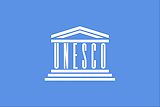
Die UNESCO erklärt, dass in Thailand Pressefreiheit herrscht. Dies gelte nicht für Radio und Fernsehen, da die meisten Radio- und Fernsehstationen vom Staat und vor allem vom Militär kontrolliert werden. Das Militär verfügt über 50 Rundfunk-Frequenzen.
1999-05-06

Abb.: Sanitsuda Ekachai (สนิทสุดา เอกชัย)
[Bildquelle: FAO]Bangkok Post: Sanitsuda Ekachai (สนิทสุดา เอกชัย, 1955 - ): "A return to the basics will inform us"
Kommentar zur Entscheidung des Sangharaja (พระสังฆราช), dass Phra Dhammachayo (พระธมฺมชโย, 1944 - ) von der Dhammakaya-Stiftung (ธรรมกาย) einen Teil seines großen Landbesitzes zu Unrecht hat und zurückerstatten muss.
"The controversy has also exposed the ugly factional politics of the Sangha Council. The Council comprises of monastic elders from two rival sects — Dhammayuti [ธรรมยุติกนิกาย] and Mahanikaya [มหานิกาย]. Since Phra Dhammachayo is a Mahanikaya monk, most of the Mahanikaya elders supporting Dhammakaya feel the Dhammayuti adherents, including the Supreme Patriarch, should stay clear of this matter. They resent His Holiness’ intervention. But factional rivalry isn’t the only factor at play. Some Mahanikaya elders might feel their survival is at stake. Like Dhammakaya, their temples teach the controversial Vijja Dhammakaya [วิชชาธรรมกาย] meditation technique, although they do not promote the belief that Nirvana is an ever-existing heaven. These monastic elders must ask themselves if they will follow should Dhammakaya go down on the basis of doctrinal corruption.
But as much as we agree with His Holiness, we shouldn’t resort to a top-down method to solving conflicts. Instead, we should go back to Buddhist principles by asking what Buddha did when faced with a similar situation.
According to Buddhism expert Banjob Bannaruji [บรรจบ บรรณรุจิ, 1953 - ], Buddha did not expel the heretic monk Phra Devadat [พระเทวทัต] when he used supernatural powers and dirty tricks to destroy him. All the Buddha did was inform the public that Phra Devadat’s behaviour was not in accordance with the Buddhist code of conduct. In short, Buddha made sure the public could distinguish the difference themselves based on principle.
Going back to core morals, we must answer these questions: Was Buddha for simplicity or grandeur? Was he for letting go or for clinging on to wealth and power? If we know Buddha’s principles, we need not fear power-hungry imposters. For we’ll know one when we see one."
[Sanitsuda Ekachai (สนิทสุดา เอกชัย) <1955 - >: Keeping the faith : Thai Buddhism at the crossroads. -- Bangkok : Post Books, 2001. -- 322 S. : Ill. ; 23 cm. -- ISBN 974-228-016-9. -- S. 286]
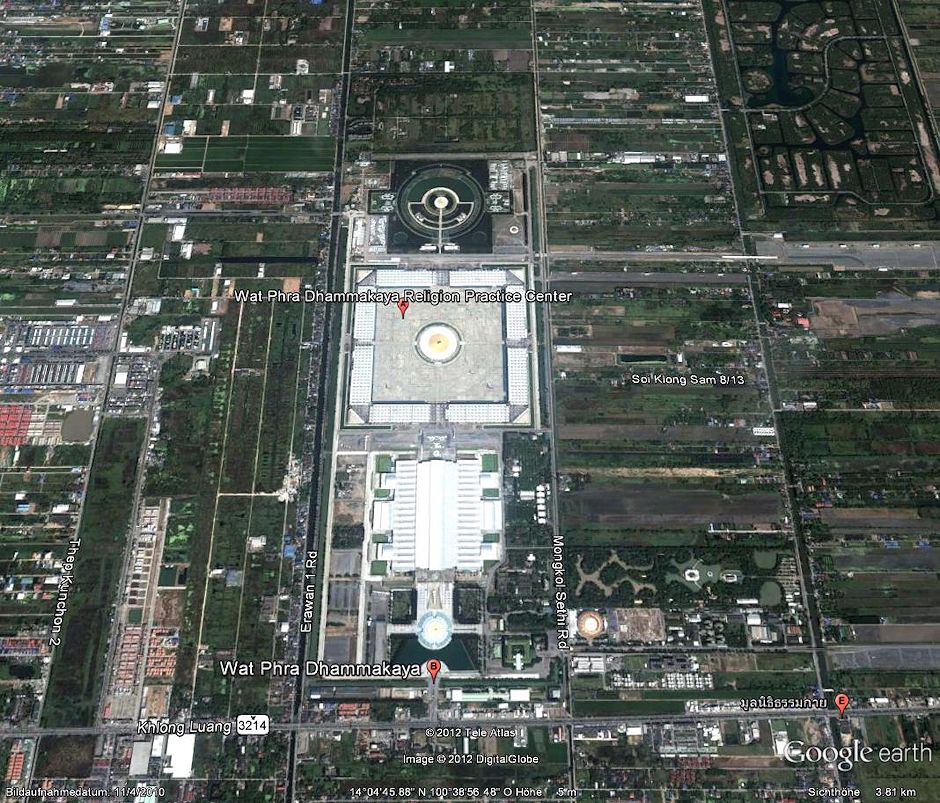
Abb.: Wat Phra Dhammakaya (วัดพระธรรมกาย), Pathum Thani (ปทุมธานี)
[Bildquelle: ©Google earth. -- Zugriff am 2012-09-27]
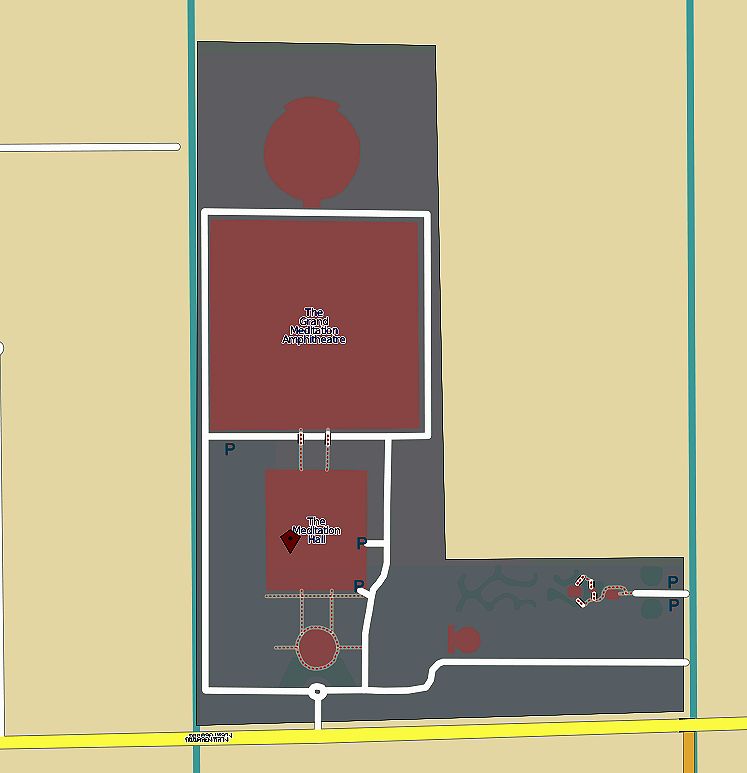
Abb.: Wat Phra Dhammakaya (วัดพระธรรมกาย), Pathum Thani (ปทุมธานี)
[Bildquelle: OpenStreetMap. --
Creative
Commons Lizenz (Namensnennung, share alike)]
1999-05-07

Die Sonne geht über Ofterdingen (Deutschland) auf: ช. "น." ว.
Abb.: Lage von Ofterdingen (Baden-Württemberg, Deutschland)
[Bildquelle: OpenStreetMap. -- Creative Commons Lizenz (Namensnennung, share alike)]
Abb.: Schule Ofterdingen (heute: Burghof-Schule), wo ช. "น." ว. hervorragende Lehrerinnen und Lehrer hatte
[Bildquelle: Alois Payer. -- Public domain]
1999-05-11
Das revidierte Royal Thai General System of Transcription (RTGS, ประกาศสำนักนายกรัฐมนตรี เรื่อง หลักเกณฑ์การถอดอักษรไทยเป็นอักษรโรมันแบบถ่ายเสียง) tritt in Kraft
1999-05-14

Prinzessin Ubol Ratana (ทูลกระหม่อมหญิงอุบลรัตนราชกัญญา สิริวัฒนาพรรณวดี, 1951 - ) bestätigt, dass sie sich von Peter Ladd Jensen (1951 - ) hat scheiden lassen. Grund sei dessen Ehebruch. Geheiratet hatten die beiden 1972, wobei Ubol Ratana auf alle königlichen Privilegien verzichtete.
Abb.: Prinzessin Ubol Ratana (ทูลกระหม่อมหญิงอุบลรัตนราชกัญญา สิริวัฒนาพรรณวดี), 2010
[Bildquelle: Edmund Yeo. -- http://www.flickr.com/photos/edmundyeo/5088476282/. -- Zugriff am 2011-12-24. -- Creative Commons Lizenz (Namensnennung, keine kommerzielle Nutzung, share alike)]
1999-05-30
Für die 144 Posten als Lokomotivführer bei BTS Sky Train (รถไฟฟ้าบีทีเอส) bewerben sich ca. 2.000 Personen. SkyTrain wird im Dezember mit 35 Zügen eröffnet werden.
1999-06-07
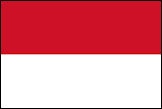
In den ersten freien Wahlen Indonesiens seit 1955 gewinnt Diah Permata Megawati Setiawati Sukarnoputri (1947 - ) und ihre Partei.
Abb.: Indonesien
[Bildquelle: CIA. -- Public domain]
Abb.: Megawati im Kreise ihrer Familie
[Bildquelle: Presidential Documents, National Library of Indonesia / Wikimedia. -- Public domain]
1999-06-21
Eröffnung des Market for Alternative Investment (ตลาดหลักทรัพย์ เอ็ม เอ ไอ) in Bangkok
"The Market for Alternative Investment (MAI or mai) is a stock exchange of Thailand which was established by the Stock Exchange of Thailand (ตลาดหลักทรัพย์แห่งประเทศไทย, SET) in 1998 under the Securities Exchange of Thailand Act as an alternative stock market for small and medium sized enterprises. It officially commenced operation on June 21, 1999. It is located in Khlong Toei, Bangkok. The mai operates independently under the supervision of the SET's board of directors. The mai committee sets its policies and oversees the market’s operation and front office duties such as stock listing and public relations. Back office functions, such as the trading system, clearing and settlement procedures, trading surveillance and supervision, as well as disclosure requirements, will be based entirely on existing Stock Exchange of Thailand operations."
[Quelle: http://en.wikipedia.org/wiki/Market_for_Alternative_Investment. -- Zugriff am 2012-06-08]
1999-06-21

Die 1995 gegründete Planstadt Putrajaya (ڤوتراجاي) wird die neue Verwaltungshauptstadt (administrative capital) Malaysias.
Abb.: Lage von Putrajaya (ڤوتراجاي)
[Bildquelle: OpenStreetMap. -- Creative Commons Lizenz (Namensnennung, share alike)]
1999-06-29
Um die übergroße Bürokratie zu verkleinern, beschließt die Regierung einen Frühpensionierungsplan, der den staatlichen Apparat um 10% (= 120.000 Staatsbedienstete) kürzen soll. Der Plan soll 2000/2001 greifen. In einer zweiten Phase sollen weitere 20% in den vorzeitigen Ruhestand geschickt werden.
ausführlich: http://www.payer.de/thailandchronik/ressourcen.htm
Zu Chronik 1999 / B. E. 2542. -- 3. Juli bis Dezember